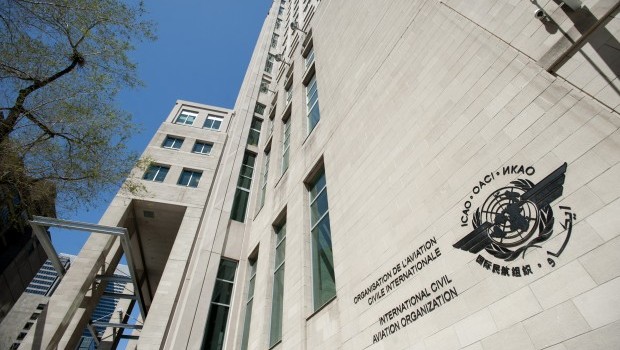
This Friday, May 3, 2013 photo shows the International Civil Aviation Organization (ICAO) headquarters in Montreal. The ICAO, which sets international civil aviation standards, has been in Montreal since its founding in 1946. (AP Photo/The Canadian Press, Graham Hughes)
Qatar first proposed that the ICAO move to Doha following a meeting of Arab UN officials in April. The proposal involves the Qatari government constructing a new headquarters for the agency, as well as paying the organization’s relocation costs and funding medical care and education for staff and their families.
Canada is launching a campaign to keep the agency in Montreal. There has been rare cooperation between the Canadian federal government and the separatist government of Quebec, who are putting together a join initiative to combat the Qatari proposal.
Canadian prime minister Stephen Harper said on Friday: “There is absolutely no reasonable case for moving the center out of Montreal.”
Harper was echoed by the foreign minister, John Baird, who stated that he had “talked to at least two Arab countries who are very positive and supportive about Montreal continuing with the headquarters.”
The American ambassador to Canada has expressed the US’s support for keeping the organization where it is, telling the Globe and Mail newspaper that “the US sees no reason to move the ICAO out of Montreal and would not support such a proposal.”
There could be economic and political implications for Canada if the agency is moved to the Gulf state. The ICAO employs 534 people and says it invests tens of millions of dollars in the country annually.
The International Organization for Civil Aviation is the only United Nations agency based in Canada.
A statement released by the ICAO said that the organization is required to consider the Qatari bid. It will be discussed during the ICAO Assembly in September and October of this year. Three-fifths of the membership—or 115 of 191 nations—must approve the move.
Both of Canada’s main national newspapers, the Globe and Mail and the National Post, have speculated that Qatar’s bid may be part of a wider Arab response to Canada’s pro-Israeli foreign policy.
Canada campaigned against UN observer-state status for Palestine last fall, and an April visit to the Middle East by its foreign minister brought recriminations from Arab states when he met his Israeli counterpart in East Jerusalem, which Israel captured from Palestine in the 1967 war.
